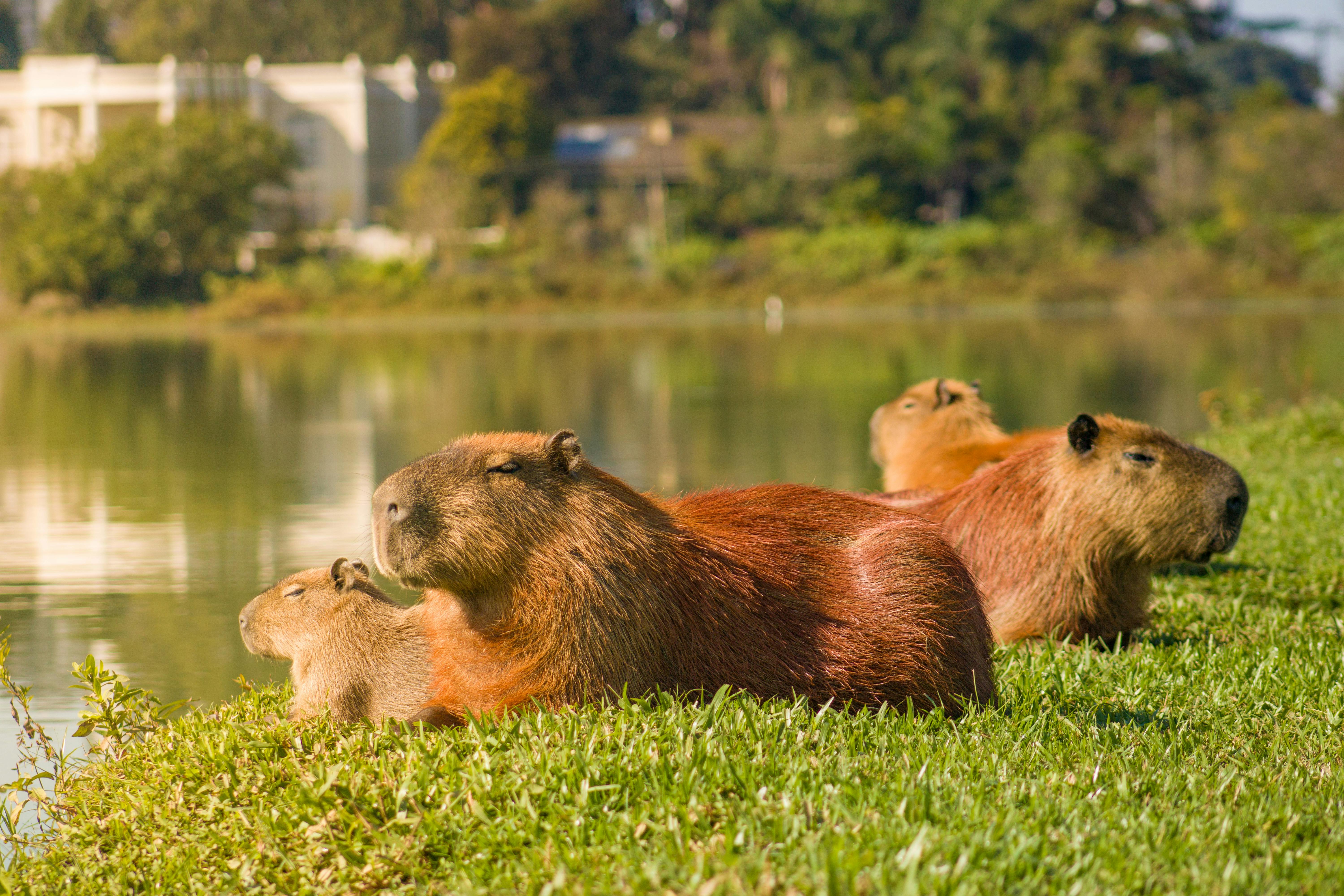Unraveling the Enigma of Capybara Companionship
The world of exotic pets has taken an intriguing turn with the rising popularity of capybaras as household companions. These giant rodents, native to South America, have captured the hearts of animal enthusiasts worldwide, sparking a new trend in unconventional pet ownership. As we delve into the world of capybara companionship, we'll explore the unique challenges and joys of sharing your home with these charismatic creatures.

The Capybara: Nature’s Gentle Giant
Capybaras, scientifically known as Hydrochoerus hydrochaeris, are the largest rodents in the world. Native to the lush wetlands and grasslands of South America, these semi-aquatic mammals have evolved to thrive in diverse environments. Adult capybaras can weigh up to 150 pounds and measure four feet in length, making them a substantial presence in any household.
In their natural habitat, capybaras are highly social animals, living in groups of 10 to 20 individuals. This social structure has contributed to their adaptability as pets, as they often form strong bonds with their human caretakers and other animals. Their gentle temperament and intelligence have made them increasingly popular among exotic pet enthusiasts seeking a unique companion.
The Legal Landscape of Capybara Ownership
Before considering a capybara as a pet, it’s crucial to understand the legal implications of ownership. Laws regarding exotic pet ownership vary widely by country, state, and even municipality. In the United States, for example, capybara ownership is legal in some states but prohibited in others. Potential owners must thoroughly research local regulations and obtain any necessary permits before bringing a capybara home.
The legal status of capybaras as pets is constantly evolving. As their popularity grows, some jurisdictions are reevaluating their stance on exotic pet ownership. It’s essential for prospective owners to stay informed about changes in legislation that may affect their ability to keep a capybara as a companion animal.
Creating a Capybara-Friendly Environment
Capybaras have specific habitat requirements that must be met to ensure their health and well-being in captivity. As semi-aquatic animals, they need access to water for swimming and temperature regulation. A large, sturdy pool or pond is essential, along with ample space for grazing and lounging.
The ideal capybara enclosure should include both indoor and outdoor areas, with plenty of room for exercise and exploration. Grass, hay, and specialized capybara feed form the basis of their diet, which must be carefully managed to prevent obesity and other health issues. Temperature control is also crucial, as capybaras are sensitive to extreme heat and cold.
Creating a suitable environment for a capybara can be a significant investment. Owners should expect to spend several thousand dollars on enclosure construction, with ongoing costs for maintenance, food, and veterinary care. The financial commitment is substantial, but many capybara enthusiasts find the rewards of companionship well worth the expense.
The Social Life of Pet Capybaras
One of the most intriguing aspects of capybara companionship is their social nature. In the wild, capybaras live in close-knit groups, and this social behavior translates well to domestic settings. Pet capybaras often form strong bonds with their human family members and can be surprisingly affectionate.
Interestingly, capybaras are known for their ability to get along with other animals. Many owners report successful cohabitation with dogs, cats, and even birds. This sociability makes capybaras an excellent choice for households with existing pets, provided proper introductions and supervision are maintained.
However, their social needs also present challenges. Capybaras thrive on interaction and can become stressed or depressed if left alone for extended periods. Potential owners should be prepared to dedicate significant time to their capybara companion, engaging in play, grooming, and simply spending time together.
Health Considerations for Capybara Companions
Maintaining the health of a pet capybara requires specialized knowledge and access to exotic animal veterinarians. While generally robust, capybaras can be prone to certain health issues in captivity. Dental problems are common, as their teeth grow continuously and require regular wear to maintain proper length.
Skin conditions can also be a concern, particularly if the capybara doesn’t have access to water for regular bathing. Parasites, both internal and external, must be monitored and treated as necessary. Regular check-ups with a veterinarian experienced in exotic animal care are essential for preventing and addressing health issues.
Nutrition plays a crucial role in capybara health. Their diet in captivity should closely mimic their natural grazing habits, with a focus on high-fiber foods. Specialized capybara feed is available, but it should be supplemented with fresh vegetables and limited fruits. Overfeeding is a common problem, as capybaras have hearty appetites and can quickly become overweight if their diet is not carefully managed.
The Future of Capybara Companionship
As the trend of capybara ownership continues to grow, it raises important questions about the future of exotic pet keeping. Advocates argue that responsible ownership can provide excellent care for these animals while offering unique companionship. Critics, however, express concerns about the welfare of capybaras in domestic settings and the potential for abandonment if owners are unprepared for the long-term commitment.
The increasing popularity of capybaras as pets has also sparked interest in conservation efforts for wild populations. Some owners have become passionate advocates for capybara habitat preservation, using their experiences to educate others about these fascinating creatures.
As with any emerging trend in pet ownership, the future of capybara companionship will likely be shaped by a combination of legal regulations, ethical considerations, and public opinion. For those who choose to embark on the journey of capybara ownership, it offers a unique opportunity to forge a bond with one of nature’s most intriguing and endearing creatures.






